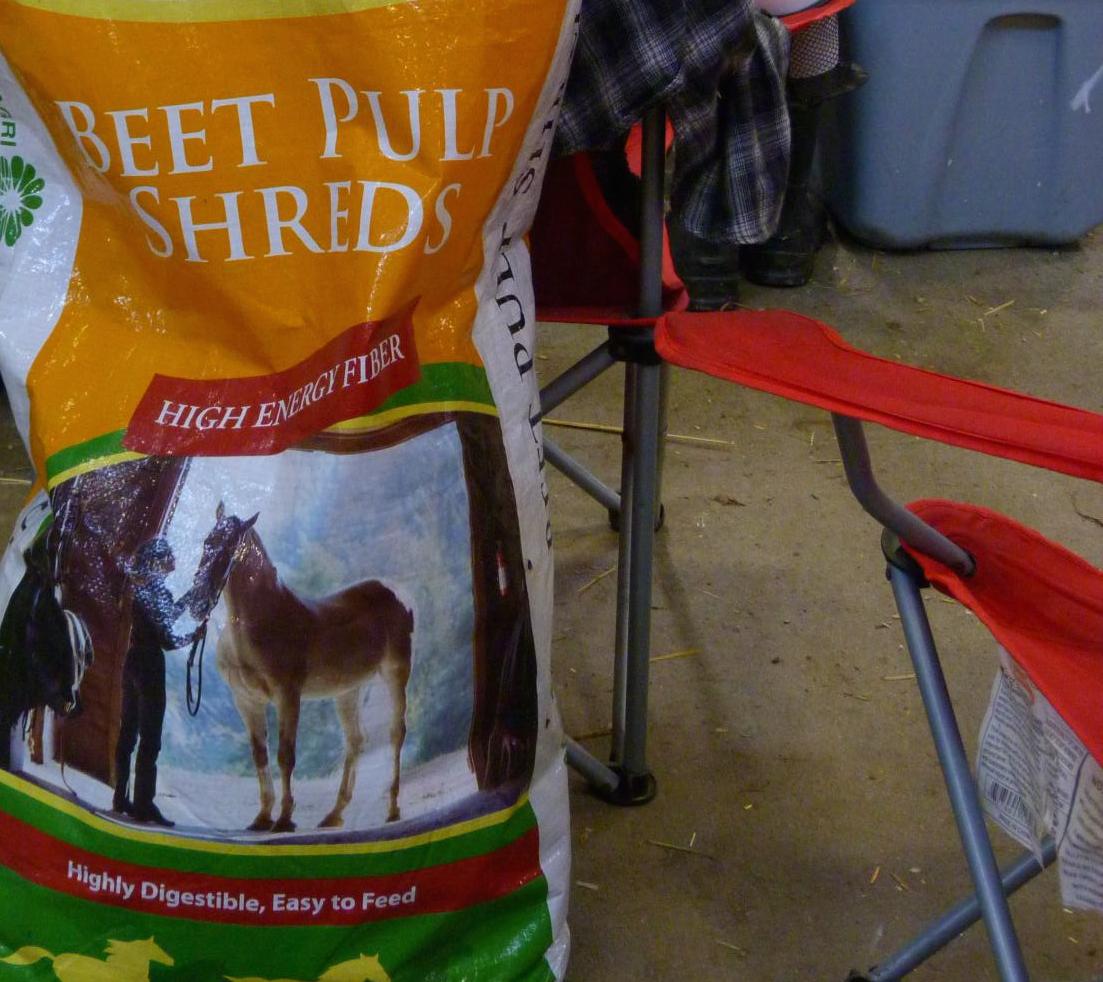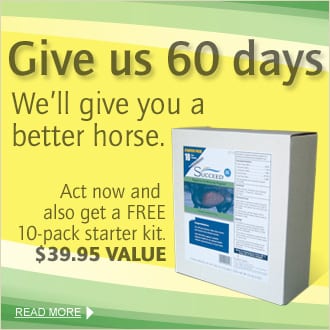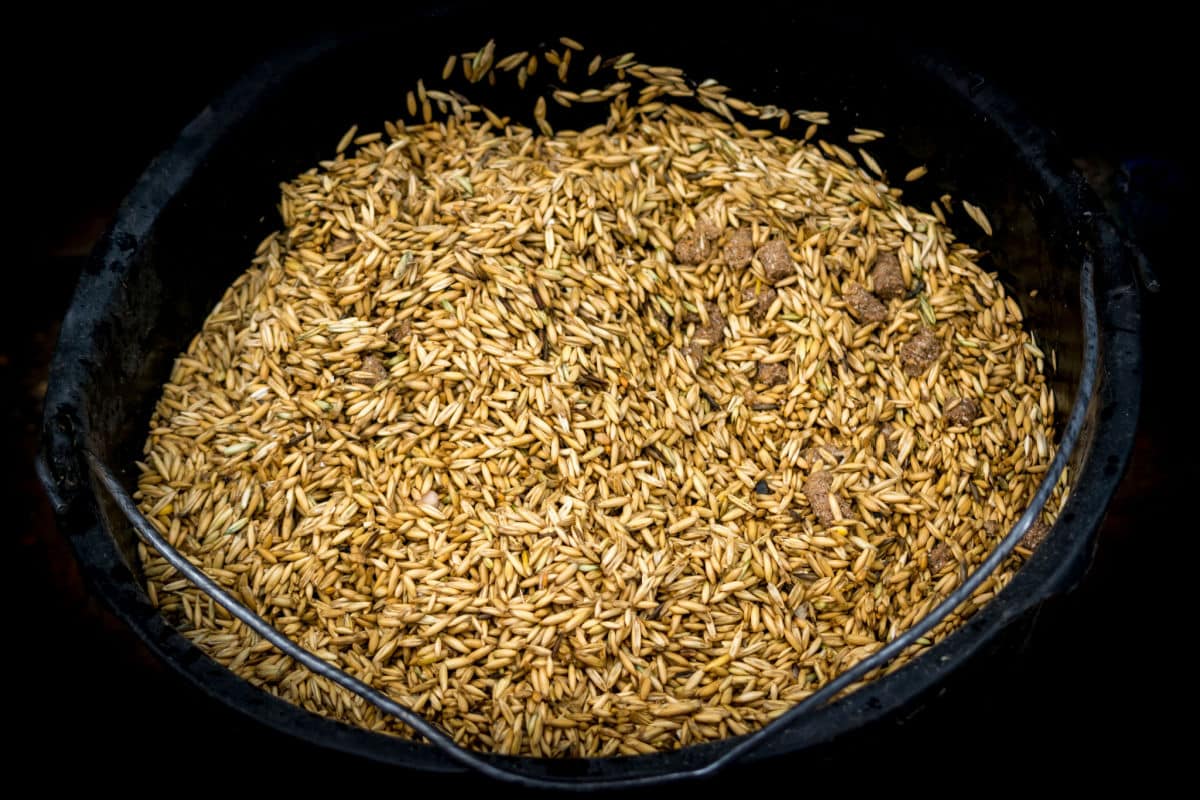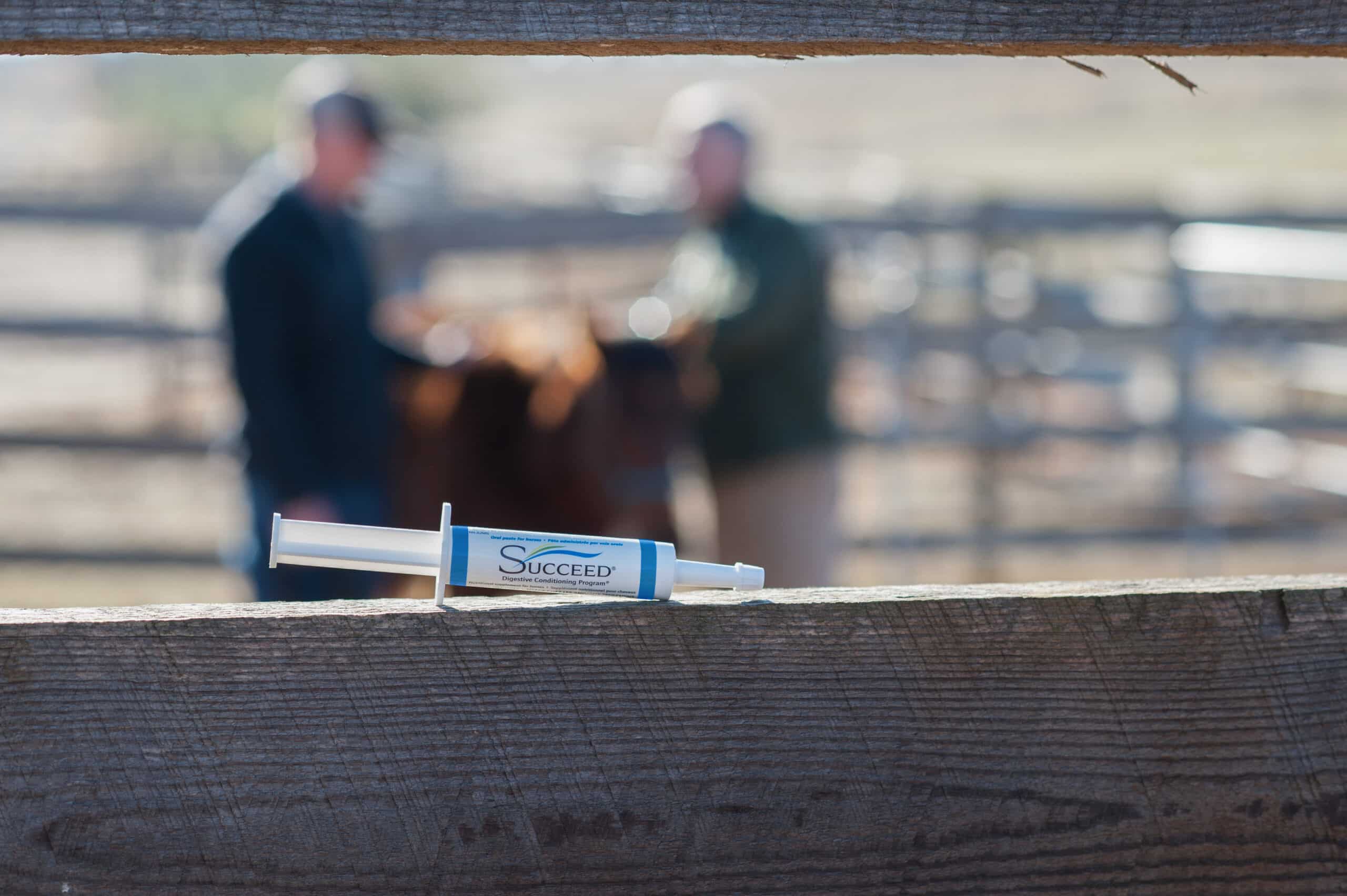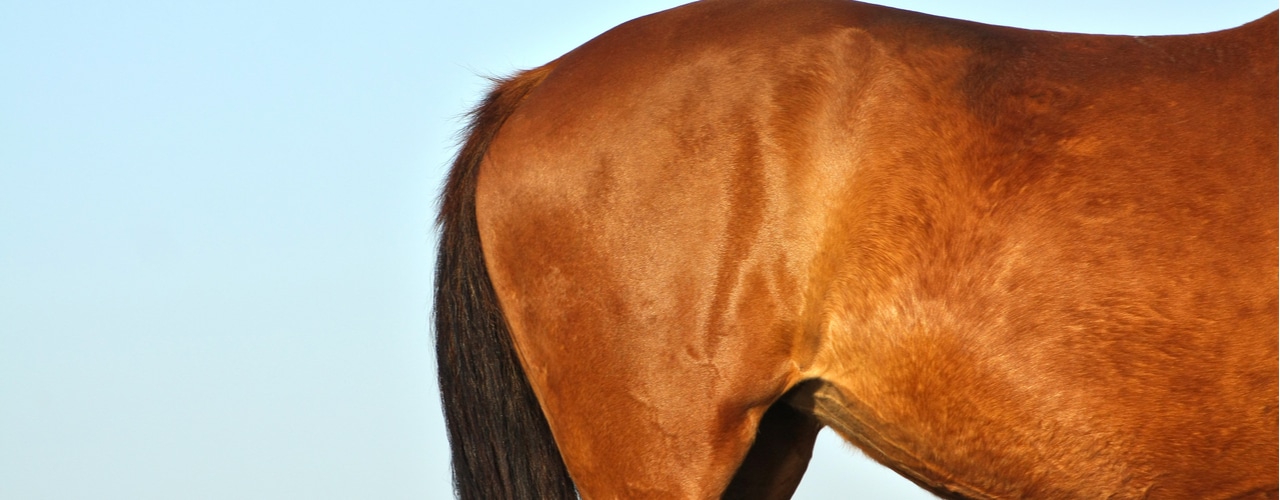Beet pulp is one of the best tools in a horse owner’s arsenal of feed choices. A fibrous byproduct of the sugar beet, beet pulp is dehydrated and sold in pellets or shredded in bags. However, beet pulp is very dry when you buy it, and expands when water is added to the mixture. These tendencies have led to a rumor that it causes choke (esophageal obstruction) or even makes a horse’s stomach explode if it isn’t soaked before feeding. But studies have shown that these rumors are myths.
Feeding unsoaked beet pulp will not cause a horse’s stomach to explode. But there are reasons to keep soaking it before feeding — and why you should keep feeding it, despite the rumors.
Benefits of Beet Pulp for Horses
Beet pulp, a complex carbohydrate that is fermented in the hindgut, is often referred to as a “super fiber,” thanks to its high digestibility and low lignin count. (Lignin is what gives stalky, over-mature hay its structure and makes it harder for horses to digest.) It’s an excellent source of digestible fiber and has a similar calorie content as oats — but with fewer starches and sometimes sugars, which can cause problems if they reach the hindgut undigested. That absence of starch and sugars makes beet pulp a good choice for hard-keeping horses. Nutritionally, beet pulp is a more natural source of concentrated energy. It’s nutritional qualities compare to good-quality grass hay and it’s an easily digestible supplement to your horse’s roughage intake.
And rest assured — just because beet pulp is the by-product of the sugar beet doesn’t mean that it’s a high-sugar feed, as extraction removes the majority of sugar. In fact, since it has a low-glycemic index, it causes only a very small rise in blood glucose levels, giving your horse steady, slow-burning energy. All of these qualities make it an excellent addition to a horse’s diet — but be sure to skip beet pulp with added molasses, which can be detrimental to the horse’s digestive system.
Dispelling the Myths Around Soaking Beet Pulp
In spite of all of the proven benefits of feeding beet pulp, they are overshadowed by the rumor that it’s a potentially dangerous feed. For this reason, most horse owners soak it prior to feeding. However, this is largely due to personal preference (either the horse owner’s, or the horse’s!). Here’s why it’s not necessary:
- Beet pulp will not cause your horse’s stomach to rupture. Adding water to beet pulp does increase its size. But home tests prove that it does so too slowly to cause concern, given the stomach’s overall capacity and tendency to empty feed matter out of the stomach and into the small intestine, and ultimately to the cecum and the colon, when it becomes full. A large university further dispelled the stomach-exploding myth in a study where horses ingested up to 45 percent of their total diet from beet pulp. No adverse effects were noted.
- Beet pulp will not cause choke on its own. Esophageal obstruction can occur when a horse eats dry beet pulp — but is generally a problem that starts with a horse’s eating behaviors — such as bolting his food — not necessarily due to the feed itself.
Why Soak a Horse’s Beet Pulp if it’s Not Necessary?
However, there are several reasons you should soak beet pulp — if your horse will eat it soaked.
- It increases palatability. Many horses prefer it soaked to a mash-like consistency.
- It’s easier to chew. This is a boon for older horses or those with dental issues.
- It provides a good medium to add supplements or medications.
- It helps hydration.
- Soaked beet pulp can help slow a horse down that bolts his food.
In summary, all of these are excellent reasons to continue (or to start) soaking beet pulp — even if it isn’t medically required.
While it’s a myth that you must soak beet pulp prior to using it, there are numerous advantages to soaking it first. Mix it in small batches at a time — left for more than 24 hours in warm weather, it could ferment. And in the wintertime, it could freeze.
And while beet pulp is an effective and highly recommended part of your horse’s diet, it doesn’t contain enough vitamin A or selenium for proper nutrition, and should be supplemented with other sources of forage and energy. A high-forage diet, plenty of turn-out time and feeding a supplement like SUCCEED can help your horse get the nutrition he needs. The ingredients in SUCCEED are specially formulated to help your horse be as healthy as possible on the inside, while feeding beet pulp can help him ingest both his feed and the supplement appropriately. And remember to always check with a veterinarian before making major changes to your horse’s diet.
Flickr Photo Credit: Rusty Clark

